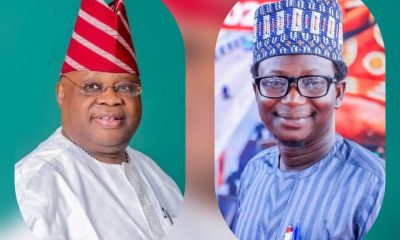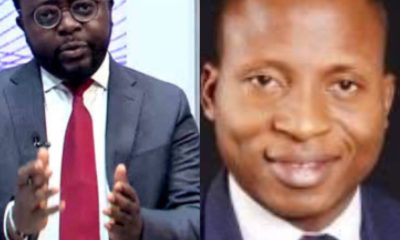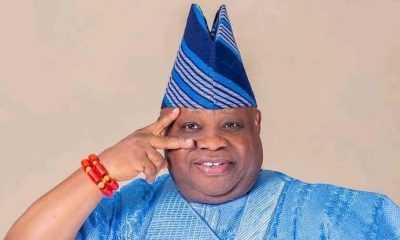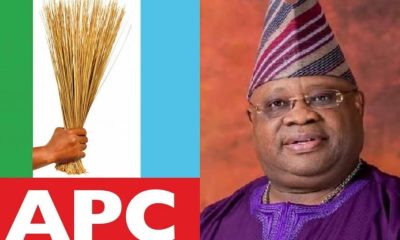Opinion
Speakership Of The 8th Osun House Of Assembly: Can A First-Timer Be Elected As The Speaker?
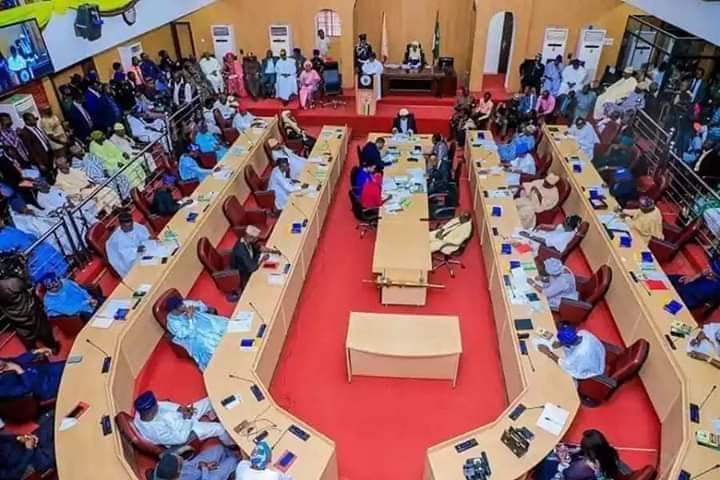
By Faruq Abbas
It is no longer news that the People’s Democratic Party in Osun State won twenty-five (25) out of the twenty-six (26) seats at the Osun State House of Assembly in the 2023 general elections. However, given that all the twenty-six (26) members-elect have collected their Certificates of Return from the Independent National Electoral Commission (INEC), the attention of the residents of Osun State has shifted to the question of who would emerge as the Speaker of the 8th Osun State House of Assembly.
Although the 8th Osun State House of Assembly would have a minimum of at least four (4) returning members, there is a strong likelihood that a first-timer from the Osun Central Senatorial District is favoured to be elected as the Speaker of the 8th Assembly. Since the news of the possibility of the emergence of a first-timer as the Speaker of the 8th Assembly went viral, there have been a lot of discussions on social media on whether or not a first-timer can be elected as the Speaker of the 8th Assembly. Therefore, this paper seeks to clarify to the public that a first-timer can indeed be lawfully elected as the Speaker of the 8th Assembly, notwithstanding the existence of more experienced members in the parliament.
Section 90 of the 1999 Constitution of the Federal Republic of Nigeria establishes a House of Assembly for every state of the Federation, whilst section 92 of the Constitution provides that there shall be a Speaker and Deputy Speaker of a State House of Assembly who shall be elected by the members of the House from among themselves. However, it is instructive to note that section 92 of the Constitution does not mention that a candidate for the speakership of a State Assembly must satisfy any other condition other than being a member of the House of Assembly. Therefore, section 92 of the Constitution implies that a first-timer can be elected as the Speaker even where there are more senior or experienced members in the House of Assembly.
Indeed, the Court of Appeal agreed with the position stated above in the case of Bauchi State House of Assembly & Ors v. Guyaba (2017) LPELR-43295 (CA), where it interpreted section 92 of the Constitution to mean that any member of the House of Assembly could be elected as the Speaker.
Furthermore, the possibility of the election of a first-timer as the Speaker of a State House of Assembly was tested in Plateau and Niger States in 2019 and Oyo State in 2011. In Plateau State, a thirty-three (33) year old final year law student, Ayuba Abok, was unanimously elected as the Speaker of the Plateau State House of Assembly even though there were ranking members in the House of Assembly. Interestingly, Ayuba Abok was nominated for Speaker by Hon Ibrahim Baba Hassan, his main challenger and a more experienced legislator. In Niger State, Hon. Abdullahi Wuse was elected as the Speaker of the 9th Assembly, and Hon. Ahmed Marafa, the immediate past Speaker of the Niger State House of Assembly, nominated him. Also, in Oyo State, Hon. Sumonu Monsurat, a first-timer, was elected as the Speaker of the Oyo State House of Assembly in 2011.
Although some might argue that it will be against convention and the Standing Rules of the Osun State House Assembly for a first-timer to be elected as the Speaker of the Osun State House of Assembly, we wish to state that this argument cannot stand because the Standing Rules of the Osun State House of Assembly is inferior to the 1999 Constitution of the Federal Republic of Nigeria. Indeed, the inferiority of the Standing Rules becomes clear if we consider that section 101 of the 1999 Constitution gives the House of Assembly the power to regulate its procedure. Thankfully, the Supreme Court of Nigeria restated this elementary principle of the law in the recent case of Independent National Electoral Commission (INEC) v. New Nigeria Peoples Party (NNPP) (2023) LPELR-60154 where Abba Aji, JSC at Pages 25-26, Paragraphs F-B, held as follows:
“There is no doubt that where there is conflict between the provision of a substantive legislation and a subordinate legislation, the provision of the substantive legislation supersedes. This is because the Act is the principal law and it is the statute that makes provision for Regulations to be made. The Act is the pillar against which the Regulations lean upon and so can never supersede or override the Act. If there is any inconsistency, it is the Regulation that will give way to the Act.”
In sum, it is clear that a first-timer can be elected as the Speaker of the 8th Osun State House of Assembly since no provision in the 1999 Constitution of the Federal Republic of Nigeria prevents the election of a first-timer as the Speaker of a State House of Assembly.
Faruq Abbas, MCIArb (UK) is the Managing Partner of Abdu-Salaam Abbas & Co. and he can be contacted via foa@abdu-salaamabbasandco.com.
Disclaimer: This piece represents the opinion of the writer and not that of CityMirrorNews
-

 Education4 days ago
Education4 days ago2026 UTME: JAMB Rules Out Extension As Registration Ends In 17 days
-
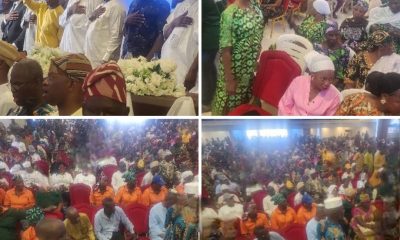
 News3 days ago
News3 days agoOsun 2026: Former SSG Adeoti, Thousand Of Supporters Declare Support For Adeleke
-
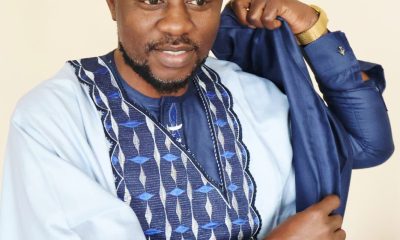
 News3 days ago
News3 days agoNigerians Cannot Afford Another Glitch: Fadojoe Insists on Real-Time Electronic Transmission of Election Results
-

 News3 days ago
News3 days agoWhy Nigerians Fear Hospitals More Than Illness By Boluwatife Adedokun



